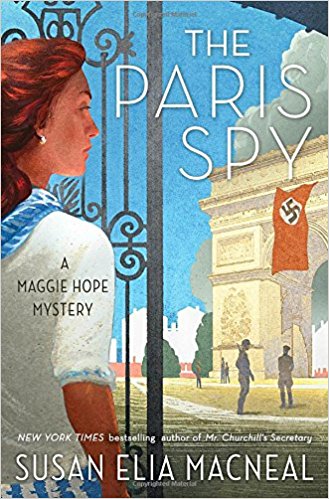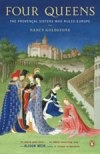 In an attempt to criticize Kate Middleton, British radio host Sandi Toksvig has dismissed her as being ‘very Jane Austen.’ Now I cannot even begin to fathom how that could be construed as negative, but it gets worse. Toksvig complains of Kate, “I cannot think of a single opinion she holds—it’s very Jane Austen.”
In an attempt to criticize Kate Middleton, British radio host Sandi Toksvig has dismissed her as being ‘very Jane Austen.’ Now I cannot even begin to fathom how that could be construed as negative, but it gets worse. Toksvig complains of Kate, “I cannot think of a single opinion she holds—it’s very Jane Austen.”
Clearly Toksvig has never actually read any Jane Austen, because her books are almost entirely composed of characters giving their opinions.
In fact, Austen’s novels were actually rather progressive in her day because her heroines were so expressive. Spirited Elizabeth Bennet readily speaks her mind, much to the discomfiture of Lady Catherine de Bourgh, who remarks “upon my word, you give your opinion most decidedly.” Mr Darcy notices this also, and it’s one of the things that draws him to Lizzy.
Emma Woodhouse also shares her opinions eagerly, even when, as noted by Mr. Knightley, they are completely off-base. “Mr Knightly loves to find fault with me,” she tells her father. “We always say what we like to one another.” Indeed, Emma dislikes Jane Fairfax precisely because “there was no getting at her real opinion. Wrapt up in a cloak of politeness, [Jane] seemed determined to hazard nothing She was disgustingly, was suspiciously reserved.”
 Marianne Dashwood, aka ‘sensibility,’ is most demonstrative about her romantic ideals. Her sister Elinor, who has more ‘sense,’ is equally ready to counter with arguments for reason. To Colonel Brandon she worries that Marianne’s openness is “setting propriety at nought.”
Marianne Dashwood, aka ‘sensibility,’ is most demonstrative about her romantic ideals. Her sister Elinor, who has more ‘sense,’ is equally ready to counter with arguments for reason. To Colonel Brandon she worries that Marianne’s openness is “setting propriety at nought.”
Also in this novel, the respectable and educated Edward Ferrars realizes that he cannot love Lucy Steele when her letters contain flattery but no substance.
While Persuasion’s Anne Elliot may be reserved, her opinion is well-regarded (except by her unkind father and sister). After Louisa Musgrove’s accident, both her brother Charles and war hero Captain Wentworth turn to Anne for advice and leadership. “‘Anne,’ cried Charles. ‘What is to be done next?’”
Even Fanny Price, the ‘Most Likely to be Voted a Pushover,’ takes a stand when her cousins plan to perform a risqué play. She also, despite enormous pressure, refuses to marry the disingenuous Henry Crawford, which gets her banished from Mansfield Park. Both Fanny and Lizzy Bennet decline financially advantageous proposals from foppish men, despite the very real threat of indigence and homelessness.
If Kate Middleton is like a Jane Austen character, it is because she exhibits a similar tempered resolve as well as much grace under challenging circumstances. Why all this Kate bashing? Ahem, Hilary Mantel.
 In addition to strong heroines, Austen liked to poke fun with a variety of foolish, ill-informed, and opinionated characters. Lady Catherine de Bourgh, though she has never studied piano, determinedly criticizes the finger work, style, and execution of anyone who plays for her. From the tiresome Mr. Collins, to the know-it-all Mrs. Elton, to the pompous Sir Walter Elliot, these caricatures opine confidently, and often nonsensically, on topics they know nothing about. Does this not seem rather like Sandi Toksvig in her disparaging of Jane Austen (and of Kate)? Perhaps it is Toksvig who is the Jane Austen character after all.
In addition to strong heroines, Austen liked to poke fun with a variety of foolish, ill-informed, and opinionated characters. Lady Catherine de Bourgh, though she has never studied piano, determinedly criticizes the finger work, style, and execution of anyone who plays for her. From the tiresome Mr. Collins, to the know-it-all Mrs. Elton, to the pompous Sir Walter Elliot, these caricatures opine confidently, and often nonsensically, on topics they know nothing about. Does this not seem rather like Sandi Toksvig in her disparaging of Jane Austen (and of Kate)? Perhaps it is Toksvig who is the Jane Austen character after all.
British Radio Host Hits Out at Duchess of Cambridge as ‘Very Jane Austen’
Author Hilary Mantel Calls Kate Middleton ‘Plastic’ and ‘Designed to Breed’
Hilary Mantel Defends Kate Middleton Comments
Royal Bodies — A Lecture by Hilary Mantel
Jane Austen Bio and Links via JaneAusten.org
Follow @WordHits on Twitter
Or Check Out WordHits on Facebook
Read Full Post »

 In an attempt to criticize Kate Middleton,
In an attempt to criticize Kate Middleton, 

 I don’t know what it is about ‘Spring Forward,’ but I always find myself reshuffling my TBR pile. During winter, the early darkness and the cold winds prompt me to reach for heavier, atmospheric tomes. I started off November with Bring Up the Bodies, Hilary Mantel’s study of Thomas Cromwell versus Anne Boleyn. I followed that with mostly moody fare like G.R.R. Martin’s A Storm of Swords, Charles Dickens’s A Christmas Carol, The Tenant of Wildfell Hall by Anne Brontë, and one of my favorite Shakespeare plays, Richard III (after they found him in a parking lot in Leicester). Shakespeare’s histories and tragedies feel like winter reading, but the comedies seem more apropos to spring and summer—except of course, Twelfth Night and A Winter’s Tale, which I should really put in my rotation next December.
I don’t know what it is about ‘Spring Forward,’ but I always find myself reshuffling my TBR pile. During winter, the early darkness and the cold winds prompt me to reach for heavier, atmospheric tomes. I started off November with Bring Up the Bodies, Hilary Mantel’s study of Thomas Cromwell versus Anne Boleyn. I followed that with mostly moody fare like G.R.R. Martin’s A Storm of Swords, Charles Dickens’s A Christmas Carol, The Tenant of Wildfell Hall by Anne Brontë, and one of my favorite Shakespeare plays, Richard III (after they found him in a parking lot in Leicester). Shakespeare’s histories and tragedies feel like winter reading, but the comedies seem more apropos to spring and summer—except of course, Twelfth Night and A Winter’s Tale, which I should really put in my rotation next December. This spring, I plan to finally reach for The Lacuna, Barbara Kingsolver’s novel about Diego Rivera in Mexico. I’m embarrassed to admit that I will be digging into the hardcover, which I bought ages ago. (Sigh, the perils of the TBR.) Kingsolver’s Animal Dreams, The Bean Trees, and Pigs in Heaven are also great reads for the sun-starved.
This spring, I plan to finally reach for The Lacuna, Barbara Kingsolver’s novel about Diego Rivera in Mexico. I’m embarrassed to admit that I will be digging into the hardcover, which I bought ages ago. (Sigh, the perils of the TBR.) Kingsolver’s Animal Dreams, The Bean Trees, and Pigs in Heaven are also great reads for the sun-starved.




